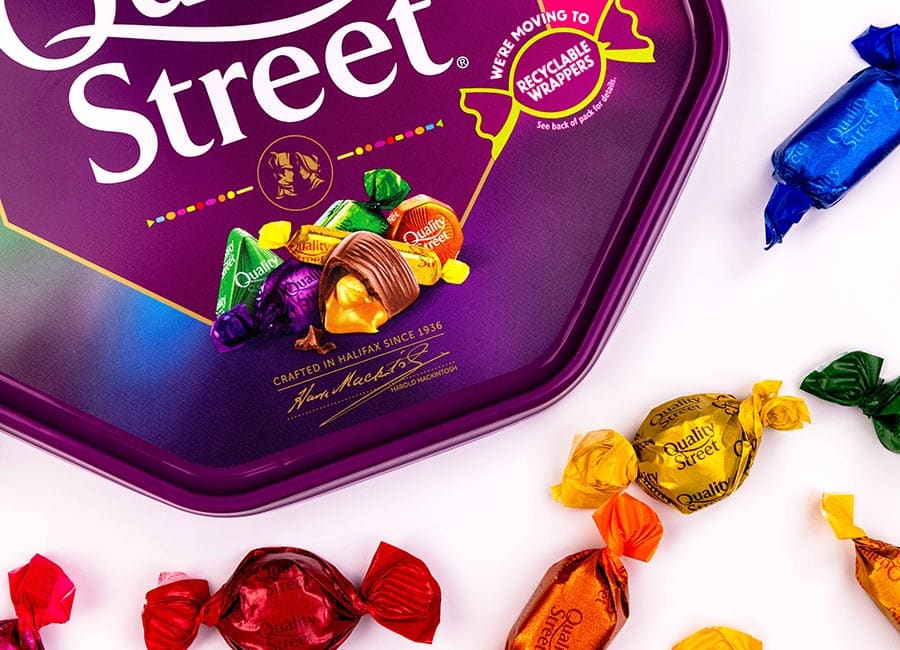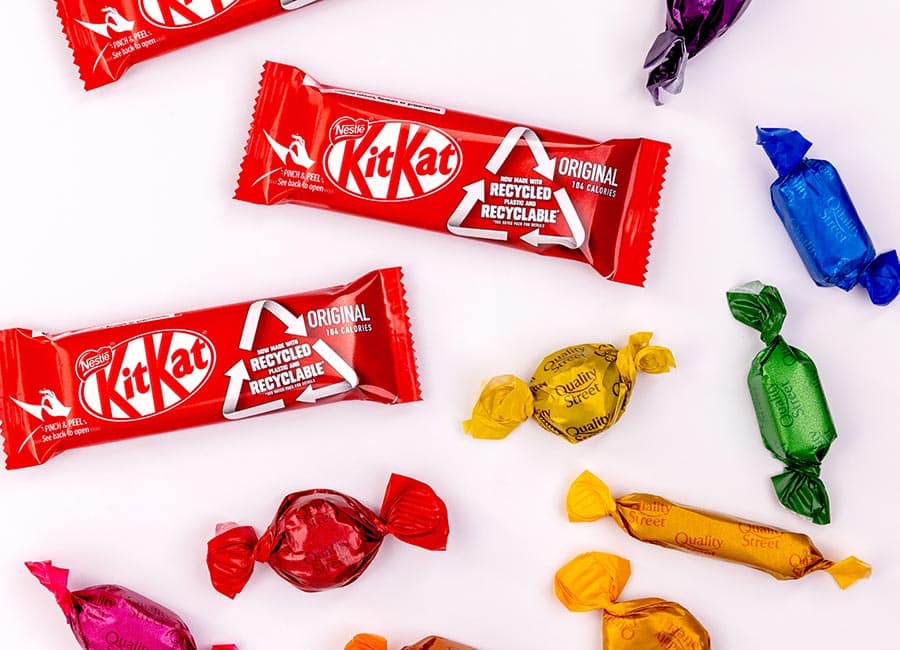Nestlé has scrapped the iconic gold foil on its KitKat chocolate bars, and has also axed the foil wrapping for its Quality Street sweets.
By replacing the double layer of foil and cellulose with a paper wrap for the Quality Street product, Nestlé says it will remove over two billion pieces of packaging material from the brand’s supply chain.
Nine of the 11 Quality Street sweets will move to paper-based packaging. The Orange Crunch and the Green Triangle will remain in their simple foil wrappers, as they don’t have cellulose wrappers.
The company said the transition will take several months to complete. For Christmas 2022 there will be a mix of old and new wrappers in Quality Street cartons, pouches, tubs, and tins.
Quality Street is the second Nestlé confectionery brand to introduce paper, following Smarties, which introduced recyclable paper packaging for all its confectionery products globally in 2021.

KitKat is introducing wrappers made with 80% recycled plastic which can be recycled in household bins.
The rollout will begin this month on the brand’s flagship two-finger products, before being extended across the entire range by 2024.
With the changes, KitKat will use the highest proportion of recycled food-grade plastic of any major UK and Ireland confectionery brand, according to Nestle.
Ben Brown, country category manager confectionery at Nestlé Ireland said: “The new KitKat packaging is enabled by a significant upgrade to Nestlé’s York Factory, while the category-leading Quality Street paper twist-wraps have been designed at our technology centre in York and implemented in Halifax, the home of Quality Street for 87 years.
“Nestlé Confectionery is taking a leadership position on packaging sustainability as we work towards reducing our use of virgin plastic by one third and making all our packaging recyclable or reusable within the next three years.”
Séamus Clancy, CEO at Repak, remarked that Nestlé has been a member of Repak for over 20 years and in 2019 joined Repak’s Plastic Pledge programme.
“Moving to a Circular Economy where we keep our resources in use as much as possible is now well recognised and recycling is a key step within this. We welcome these changes by Nestlé to help us all recycle as much as we can,” Clancy added.
Nestlé said it has sourced 100% certified sustainable cocoa for all its chocolate and biscuits since the end of 2015 and is aiming to halve the carbon footprint of its local fresh milk supply by 2026.








